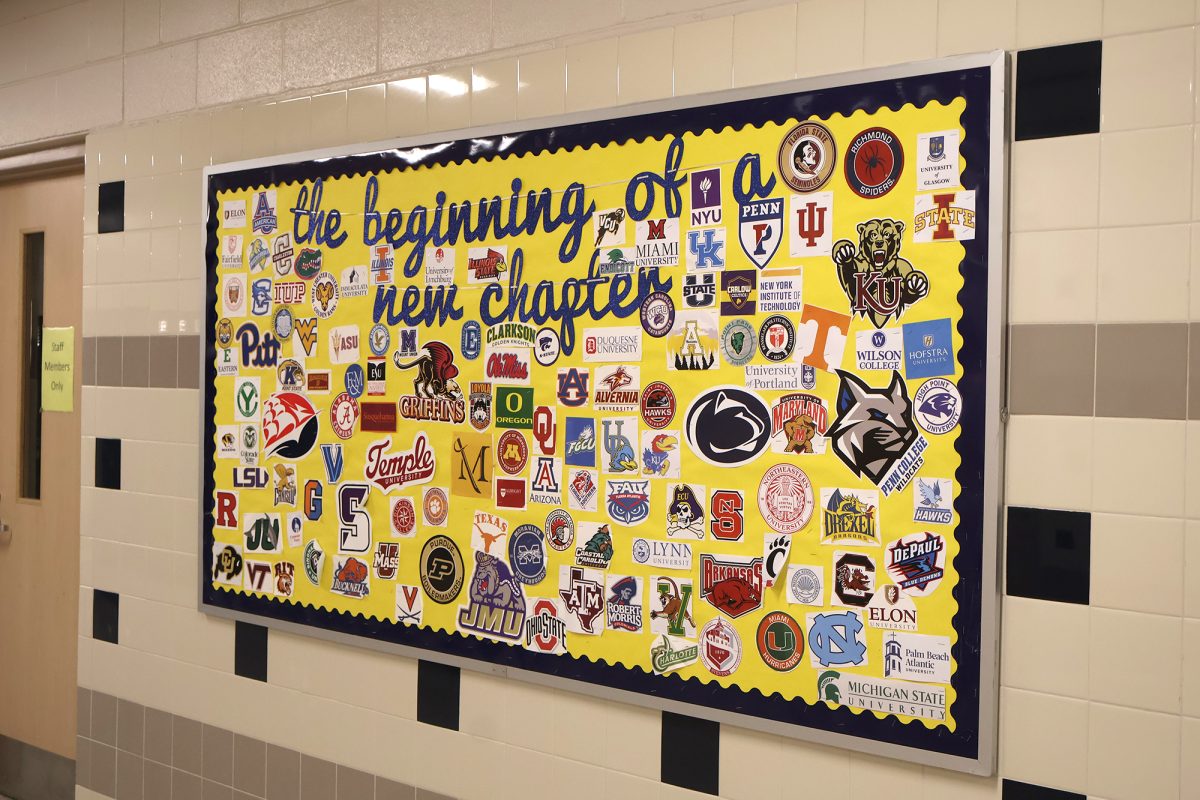Senior year of high school comes with lots of adventures. There are the Impact Awards, Honors Banquet and Decision Day. Although the year is filled with lots of fun times and exciting quests, there is a big decision looming over most seniors’ heads.
What happens after June?
The military, college, trade school, or working full time are all paths that seniors will choose to take in the coming months. Even though it might seem like everyone has figured it out well in advance, the truth is it takes a long time for students to think over all the possible factors of choosing a next step, like location of school, how many years of schooling are required, and, most prominently, the cost.
In an article posted by Inside Higher Ed, increasing prices of tuition and questions about the value of a college degree have come under fire with recent polls surveying people interested in higher education and those who are currently pursuing it.
“When evaluated further, a sticking point for most Americans is they don’t believe higher education is worth the cost students are paying — or the debt they’re accruing — compared to the salaries they’re earning,” the article states.
Choosing where to pursue a degree is not only a current investment, but an investment that requires one to think ahead to the future and about whether they will be making enough of a profit in a future career to be spending large amounts of money on college.
The article also points out, “The cost of higher education has steadily increased over the past decade across nonprofit institutions, according to data from the National Center for Education Statistics.”
This statistical study brings up the point of unpredictability in the financial aspect of paying and preparing students for a college education. When students are admitted into college and earn their scholarship, they are given a detailed financial aid offer that clearly states the price of tuition and other costs they will be directly or indirectly billed for throughout the school year. However, the price of tuition when you are a freshman is more likely than not to fluctuate greatly over the span of four years of college. Only a select few schools offer a price lock on tuition (a guarantee that students will pay the same amount for tuition for all four years), which means students and their families are left to foot the bill for rising costs.
Being a senior myself, I understand the struggle of trying to find a good academic fit in a school while also trying to find a suitable financial fit. When I asked some of my peers what they take into consideration when choosing a college, the common answers of price, major options, and internship opportunities all come up frequently.
Something people often sweep under the rug or do not take as seriously is location. It may seem silly, at first, that someone would choose a college due to it being within a mile of the beach, but with the current mental health and depression crisis happening amongst teens and young adults, a tranquil location can be the perfect solution for a successful four years (and even beyond).
Although it is an overwhelming year with too many choices, seniors at Spring-Ford are given all the resources they need to make the right decision for themselves and their families.











